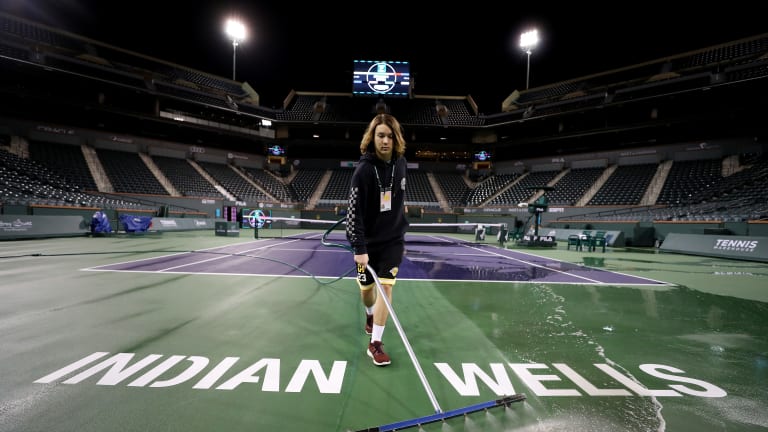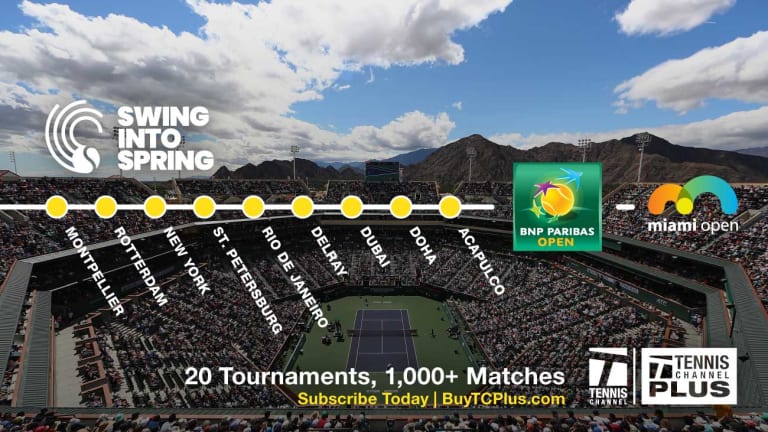Indian Wells, USA
Facing the coronavirus, tennis is in a battle to keep its season alive
By Mar 09, 2020Indian Wells, USA
Carlos Alcaraz and Iga Swiatek reset with Indian Wells wins, as rivals endure their own slip-ups
By Mar 18, 2024Indian Wells, USA
Carlos Alcaraz defeats Daniil Medvedev to defend his Indian Wells title, Iga Swiatek beats Maria Sakkari for women's title
By Mar 17, 2024Indian Wells, USA
Carlos Alcaraz wins second straight Indian Wells title with victory over Medvedev in final
By Mar 17, 2024Indian Wells, USA
From the yellow ball to the crystal ball: What's in store for the future of the BNP Paribas Open?
By Mar 17, 2024Indian Wells, USA
Iga Swiatek beats Maria Sakkari again in BNP Paribas Open final
By Mar 17, 2024Indian Wells, USA
Top 5 Indian Wells Finals, No. 1: Serena Williams d. Steffi Graf, 1999
By Mar 17, 2024Indian Wells, USA
2024 BNP Paribas Open men’s final preview: Carlos Alcaraz vs. Daniil Medvedev
By Mar 17, 2024Indian Wells, USA
Top 5 Indian Wells Finals, No. 2: Rafael Nadal d. Juan Martin del Potro, 2013
By Mar 17, 2024Indian Wells, USA
Who Will Win: Carlos Alcaraz or Daniil Medvedev, 2024 Indian Wells men's final
By Mar 17, 2024Indian Wells, USA
Facing the coronavirus, tennis is in a battle to keep its season alive
Indian Wells was the first domino to fall. Can tennis’ stakeholders find a way to come together and keep the rest of the 2020 season from going down with it?
Published Mar 09, 2020
Advertising

Facing the coronavirus, tennis is in a battle to keep its season alive
© Getty Images
Advertising
Advertising

Facing the coronavirus, tennis is in a battle to keep its season alive